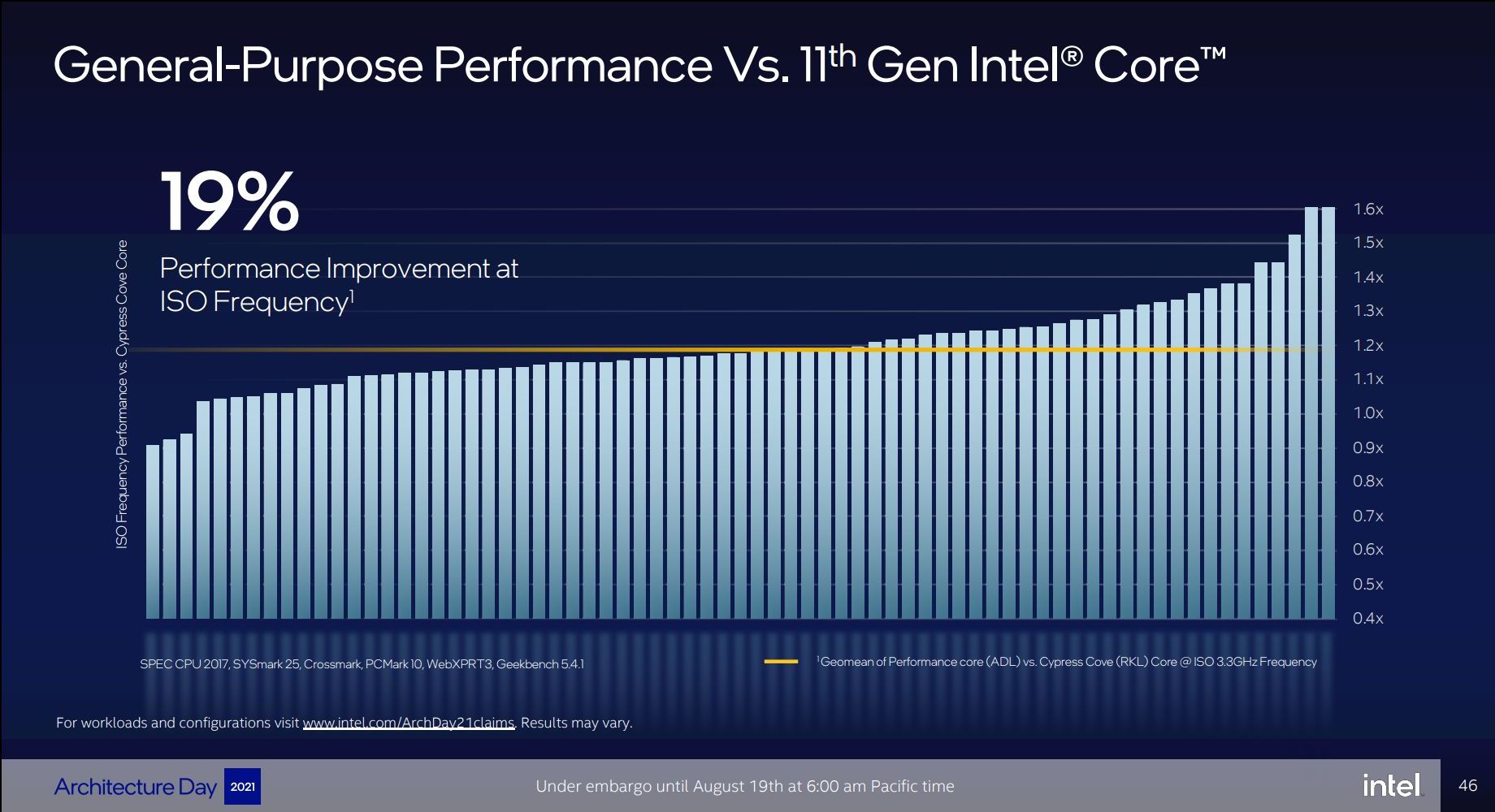trexfromouterspace
Member
- Feb 17, 2020
- 108
- 289
- 136
Would it be unreasonable to expect the usual 15% IPC gains? With V-cache on top of that I think it will take the gaming crown at least.
Yes. If Zen 4's a derivative, ~10% IPC is a more realistic expectation. Zen->Zen 2 's 15% was abnormally high for a tick iteration. Zen 2->Zen 3 isn't relevant given that Zen 3 was a tock. As far as vcache goes, you shouldn't expect it to be on anything other than a crazy-expensive halo sku, I'm talking like $1500. Stacking is still in its infancy and the tools being used can't handle the volume to do anything else. Plus the extra L3 is mainly useful for compile workloads, so I could see any capacity being bought up by corporate customers.
Now with that said, it's not like Zen 4's immediately dead in the water or anything. It'll still have a commanding power and area lead over Golden Cove, even factoring in Golden Cove's assumed IPC lead. Being on N5 will also give it extra clocks and efficiency as well. Plus it looks like it'll have AVX-512, which we now know Alder Lake lacks. So even if there's a slight IPC disadvantage, Zen 4 should easily make that up in other areas. If Alder Lake was only Golden Cove, AMD wouldn't need to worry. They'd probably break even on desktop and dominate in mobile while offering AVX-512, but Alder Lake isn't just Golden Cove.
The real problem for AMD is going to be Gracemont (frankly, I've been saying this for a while). It probably won't help a ton in gaming since the schedulers will have some teething issues. But in mobile, AMD simply doesn't have an answer. Gracemont could also be used in the server. Imagine a Sapphire Rapids fork that uses 240 gracemont cores instead of 60 Golden Cove cores (or maybe mix and match the die), that can be an extremely compelling product depending on your workload.




